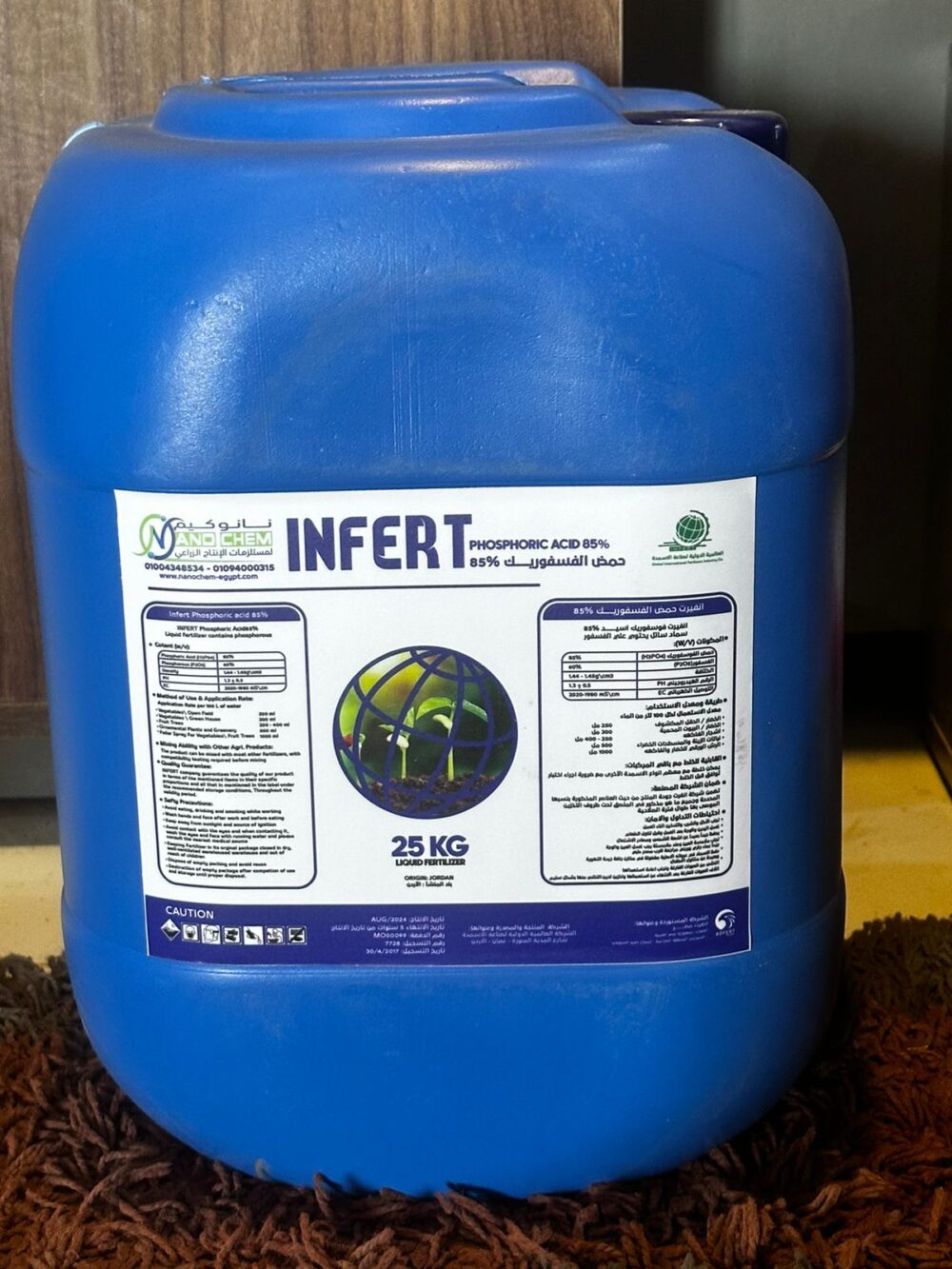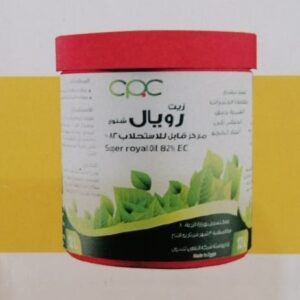Description
Phosphoric acid (H₃PO₄) is widely used in agriculture as a source of phosphorus, an essential nutrient for plant growth. Phosphorus is one of the three primary macronutrients (NPK) that plants require in large quantities. It plays a crucial role in DNA formation, energy transfer, and the development of roots and flowers.
Uses of Phosphoric Acid in Agriculture:
- Phosphate Fertilizers:
- Phosphoric acid is used in the production of phosphate fertilizers such as Monoammonium Phosphate (MAP) and Diammonium Phosphate (DAP), which are effective in providing plants with the necessary phosphorus.
- Enhancing Phosphorus Absorption:
- It helps in stimulating the absorption of phosphorus in the soil, thereby improving root growth and increasing crop yield.
- Soil Quality Improvement:
- Phosphoric acid can be used to adjust soil pH, enhancing the availability of phosphorus and other nutrients.
- Irrigation Systems:
- In some drip irrigation systems, phosphoric acid is added to clean pipes of calcium deposits and improve water delivery efficiency.
- Plant Health Maintenance:
- Phosphorus contributes to the formation of ATP (Adenosine Triphosphate), the primary energy source in plant cells, enhancing plants’ resistance to diseases and promoting growth.
Environmental Considerations:
- While phosphoric acid is beneficial in agriculture, it should be used carefully to avoid phosphorus pollution in groundwater and surface water, which can lead to eutrophication—a process that causes harmful algae blooms and negatively impacts aquatic environments.





Reviews
There are no reviews yet.